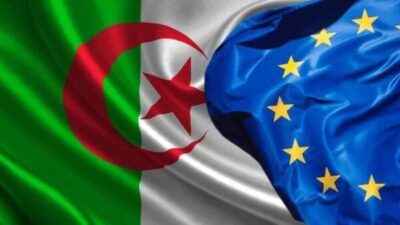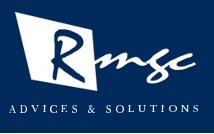Procedures to follow to create a business in Algeria.
In order to benefit from tax and social advantages and to obtain land where your factory will be located, we advise you to register on the website:www.aapi.dz
(for the technical and economic study, please contact us).
Creation-of-company-advantages-from-AAPI.pdf (2576 downloads ) I- The advantages granted by the AAPI (Algerian Agency for the Promotion of Investment).
1.1 Under the implementation phase
- Exemption from customs duties for imported goods used directly in the realization of the investment;
- Exemption from VAT for goods and services imported or acquired locally, entering directly into the realization of the investment;
- Exemption from transfer tax, for payment, and land registration tax, for all real estate acquisitions made as part of the investment concerned;
- Exemption from registration fees payable for company constitutive documents and capital increases;
- Exemption from registration fees, land registration tax as well as state remuneration relating to concessions of built and undeveloped real estate, intended for the realization of investment projects;
- Exemption from property tax on real estate properties, falling within the scope of the investment, for a period of ten (10) years, from the date of acquisition.
1.2 During the operation phase
for a period ranging from three (3) to five (5) years, from the date of entry into operation, of: Exemption from corporate income tax (IBS);
1.3 Foreign Investment In Algeria
The regime applicable to investments made in economic activities producing goods and services is governed mainly by the provisions of Law No. 22-18 relating to investment of July 24, 2022, as well as its implementing texts.
The provisions of this new Law aim to encourage investment with the aim of developing priority sectors of activity with high added value, ensuring sustainable and balanced territorial development and promoting natural resources and local raw materials.
It is also about encouraging technological transfer and developing innovation and the knowledge economy, generalizing the use of new technologies, boosting job creation, promoting the skills of human resources and strengthen and improve the competitiveness of the national economy and its export capacity.
It should also be noted that the Law provides that the rights and advantages legally acquired by the investor are maintained, and remain governed by the laws under which they were registered and/or declared, until the expiry of the duration said advantages.
1.4 The establishment of a company in partnership with foreigners
Established by the complementary finance law for 2009 then taken up by the 2016 Finance Law, the so-called 49-51% rule and since the promulgation of the 2020 Finance Law has been modified and is now limited only to so-called strategic activities as well as as for import operations of raw materials, goods and products intended for resale as is.
Thus, the strategic sectors subject to the 49-51% rule are, according to the Supplementary Finance Law for 2020, the following:
- The exploitation of the national mining domain, as well as any underground or surface resource relating to an extractive activity on the surface or underground, excluding quarries for non-mineral products;
- Upstream of the energy sector and any other activity governed by the law on hydrocarbons, as well as the operation of the distribution and transportation network of electrical energy by cables and of gaseous or liquid hydrocarbons by overhead or underground pipes;
- Industries initiated or linked to military industries under the Ministry of National Defense;
- Railway tracks; ports and airports;
- Pharmaceutical industries, with the exception of investments linked to the manufacturing of innovative essential products, with high added value, requiring complex and protected technology, intended for the local market and for export.
In this context, Executive Decree No. 21-145 of April 17, 2021 establishing the list of activities of a strategic nature was published in the Official Journal No. 30 of April 22, 2021 and the activities of a strategic nature relating to the sectors of the energy and mining, pharmaceutical industry and transport, subject to a 51% resident national shareholding participation are as follows:
Any transfer of shares by foreign parties to other foreign parties, of the share capital of an entity under Algerian law carrying out one of the strategic activities, is subject to authorization from the Government.
Any transfer of assets from a non-resident foreign party to a resident national party is assimilated to an importation of goods or services and therefore complies with the provisions governing exchange control regarding the transfer of proceeds from the operations of the transfer.
1.5 Types of contributions accepted in Algeria
The Algerian regulations in force provide for three types of contributions defined as follows:
- Cash contributions: the funds resulting from the cash subscription are deposited, either in the hands of the notary or with a financial institution.
For non-resident shareholders or associates, the funds are deposited in a holding account opened in foreign currency in an Algerian bank in the name of the company being established.
- Contributions in kind:one or more contribution commissioners are appointed by court decision at the request of the founders or one of them. They assess, under their responsibility, the value of contributions in kind. Their report is annexed to the statutes.
- Contribution in industry: this form of contribution is only applicable for single-member companies and for Limited Liability Companies.
The evaluation of its value and the fixing of the shares it generates in the profits are fixed in the statutes of the company, this contribution does not enter into the constitution of the capital of the company.
1.6 Eligibility for dividend transfer:
Only companies under Algerian law whose activity is involved in the production of goods or services are authorized to transfer dividends to the percentage of shares held in the share capital of foreign partners and the transfer of directors’ fees. For mixed activities, an agreement Prior payment from the Bank of Algeria is required.
Transfers of funds for the benefit of natural or legal persons not resident in Algeria must be declared in advance to the tax services. Concerning dividends distributed, they are subject at the time of their payment to a withholding tax operated by the company which pays said sums. The rate of withholding is 15% tax free. Please note that profits transferred to a non-resident foreign company by its branch established in Algeria or any other professional installation in the tax sense.
1.7 Formalities related to the transfer of dividend:
The documents to be provided for processing dividend transfer files are:
- Transfer request ;
- Copy of the commercial register;
- Copy of the company’s statutes and their updates;
- The transfer order;
- Certificate from a bank justifying the contribution of foreign shareholders or associates supported by documents justifying the repatriation and transfer to the Bank of Algeria;
- Copy of the minutes of the Ordinary General Meeting of shareholders or associates having decided on the allocation of results showing the amount of profits and the amount of dividends distributed as well as the terms of payment in the form of an act authentic notarized;
- Taking the attendance sheet of the directors and/or shareholders who participated in the holding of the AGO, the said minutes must be the subject of a legal deposit and satisfy the legal publication obligations (BOAL);
- Copy of the statement authenticated by the auditor of the distribution of income allocated to beneficiaries, less taxes and duties;
- Copy of the balance sheet and the TCR for the financial year for which the transfer was requested as well as the auditor’s report certifying the sincerity and regularity of the accounts;
- In addition, the auditor’s report must be without reservations, failing which a certificate from the CAC attesting that the reservations formulated are not blocking the transfer of dividends;
- Bulletin of legal announcements (BOAL) (final publication including the No. and date of Publication);
- Certificate of transfer of funds, tax clearance, tax roll extract;
- 3 original copies of the B&C statistical tables as defined by instruction n°09-05 of the Bank of Algeria;
- Court decision extending deadlines for dividends distributed in previous financial years and not having been transferred within 09 months from the close of the financial year concerned, as provided for in Article 724 of the Commercial Code.
- The execution of the transfer must absolutely take place within the regulatory deadlines of September 3 of each financial year.
II- Land
2.1 Composition of Economic Land:
- Developed land belonging to industrial zones and activity zones,
- Developed land located within the perimeter of new towns,
- Developed land falling within expansion zones and tourist sites
- Developed land belonging to technology parks,
- Residual real estate assets of dissolved public companies
- Excess real estate assets of public economic enterprises
2.2 Concession of economic land:
Applications for the granting of economic land registered on the investor’s digital platform, managed by the Algerian Investment Promotion Agency, which constitutes the one and only submission method.
Economic land intended for the implementation of investment projects is granted by way of over-the-counter concession convertible into transfer for a period of thirty-three (33) years, renewable, by decision of the Algerian Investment Promotion Agency. (AAPI).
Display durationof the list of real estate intended to receive investment projects is set at thirty (30) days.
Registered requests for the granting of economic land are processed and responded to by the Algerian Investment Promotion Agency within a period not exceeding fifteen (15) days, from the date display timeout.
When the state land, subject of the concession request, is located within the perimeter of an expansion zone and tourist site, industrial zone, activity zone, technological park or new town, the location of the project The investment must be made in compliance with the specifications, the requirements of the published development permit and the approved development plans.
2.3 Eligibility of the economic land applicant
Any natural or legal person, national or foreign, resident or non-resident, within the meaning of Law No. 22-18 of July 24, 2022 relating to investment, carrying an investment project, may apply for the benefit of a concession by mutual agreement convertible into the transfer of real estate falling within the private domain of the State.
- BUSINESS CREATION – TAX ADVANTAGES
To benefit from the advantages provided for by the provisions of this law, investments must, prior to their realization, be registered with the competent one-stop shop or via the investor’s digital platform “invest. go.dz”.
The registration of the investment is materialized by the issuance, immediately, of a certificate accompanied by the list of goods and services eligible for advantages authorizing the investor to claim from the administrations and organizations concerned (Executive Decree No. 22 – 299 of September 8, 2022).
Registration with the Agency’s One-Stop Shops:
- Registration with Decentralized Single Windows at the local level for investments whose amount is less than two billion dinars (2,000,000,000 DA).
- Registration with the Single Window for Major Projects and Foreign Investments:
- structuring investments whose amount is equal to or greater than ten (10) billion dinars and the level of direct employment is equal to or greater than five hundred (500) job positions;
- investments whose amount is equal to or greater than two billion dinars (2,000,000,000 DA);
- investments whose capital is held in whole or in part by foreign natural or legal persons.
- SMIC (minimum salary) AND SOCIAL CHARGES
4.1 SNMG: Guaranteed National Minimum Salary
The guaranteed national minimum wage (SNMG) is20,000 DZD (145.6 €uros as of November 3, 2022, 1 Algerian Dinar is worth 0.00728 euros) per month for 40 hours of weekly work, i.e. an hourly rate of 115.38 DZDsince Presidential Decree No. 21-137 of April 7, 2021, with effect from June 1, 2020.
4.2 Social charges
1-For Contributions:
For salaried workers, the single contribution rate is 34.5% of the salary subject to contribution as defined by law. This rate is distributed as follows:
| Branches | Employers | Workers | Share of social works | Total |
| Social Insurance | 12.50% | 1.50% | | 14% |
| Work Accidents and Occupational Illnesses | 1.25% | – | | 1.25% |
| Retirement | 10% | 6.75% | 0.50% | 17.25% |
| Early retirement | 0.25% | 0.25% | | 0.50% |
| Unemployment insurance | 1% | 0.50% | | 1.50% |
| Total | 25% | 9% | 0.50% | 34.50% |
For non-employees, the rate of the overall contribution, payable by the taxable person, is 15% calculated on the basis of the annual taxable income or, failing that, the turnover, or in certain cases on the basis of the Annual SNMG. This rate is distributed equally (7.5%) between the social insurance and retirement branches. For particular inactive categories, the contribution rate payable by the State budget varies between 0.5 % and 7% of the SNMG.
https://www.mtess.gov.dz/fr/politique-nationale-et-legislation-de-la-securite-sociale/
4.3 IRG: Global Income Tax
How to calculate IRG for an employee?
Taxable salary (S) is between 15,000 DA and 22,500 DA SoIRG= (S-15,000)x20/100-1000.
Taxable salary (S) is between 30,000 DA and 120,000 DA SoIRG= 2,500 + (S-30,000)x30/100.
Taxable salary (S) is higher: 120,000 DA ThenIRG=29,500 + (S-120,000)x35/100.
This tax is withheld at source.
https://www.mfdgi.gov.dz/fr/particuliers/irg-traitements-et-salaires












